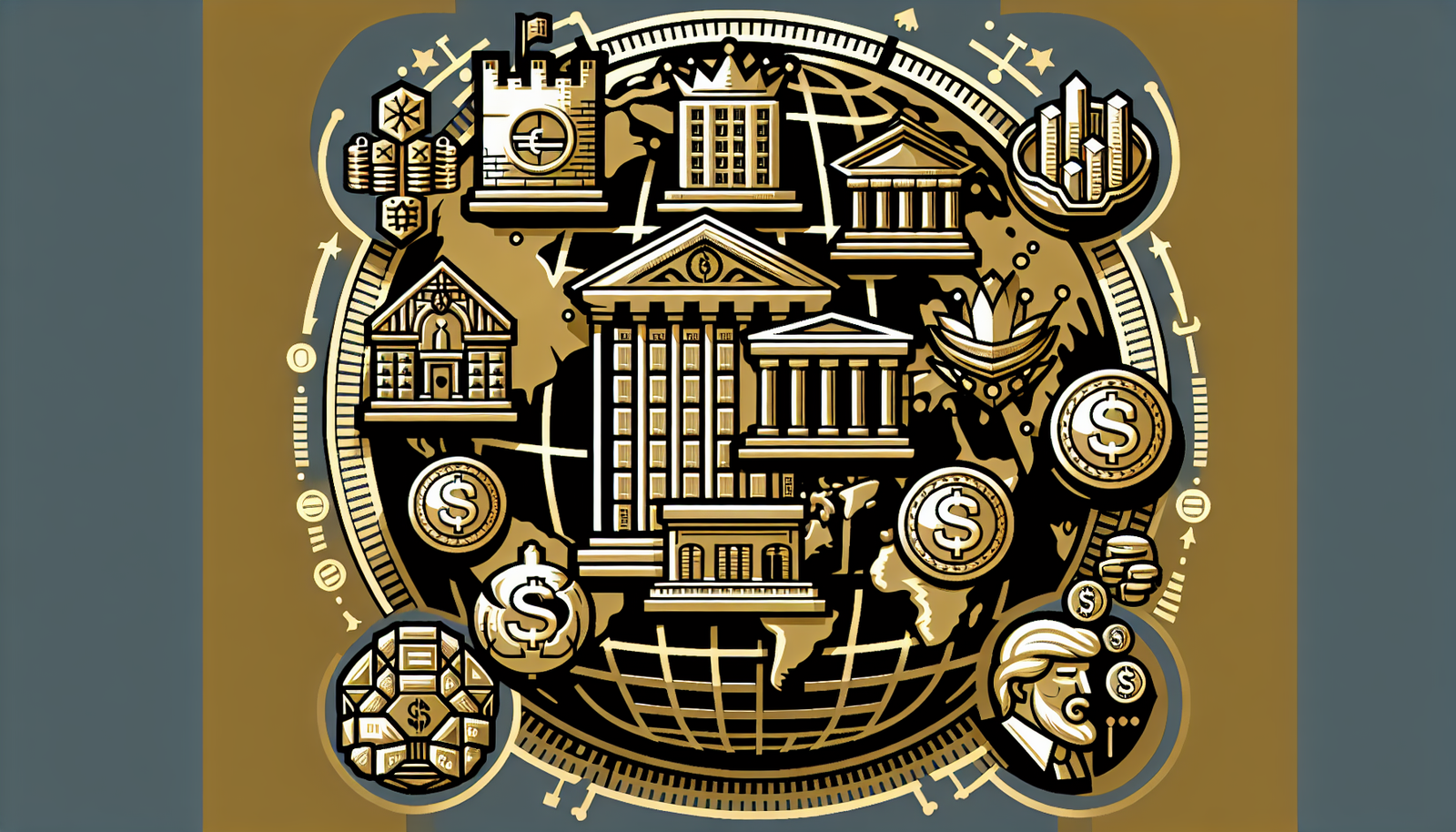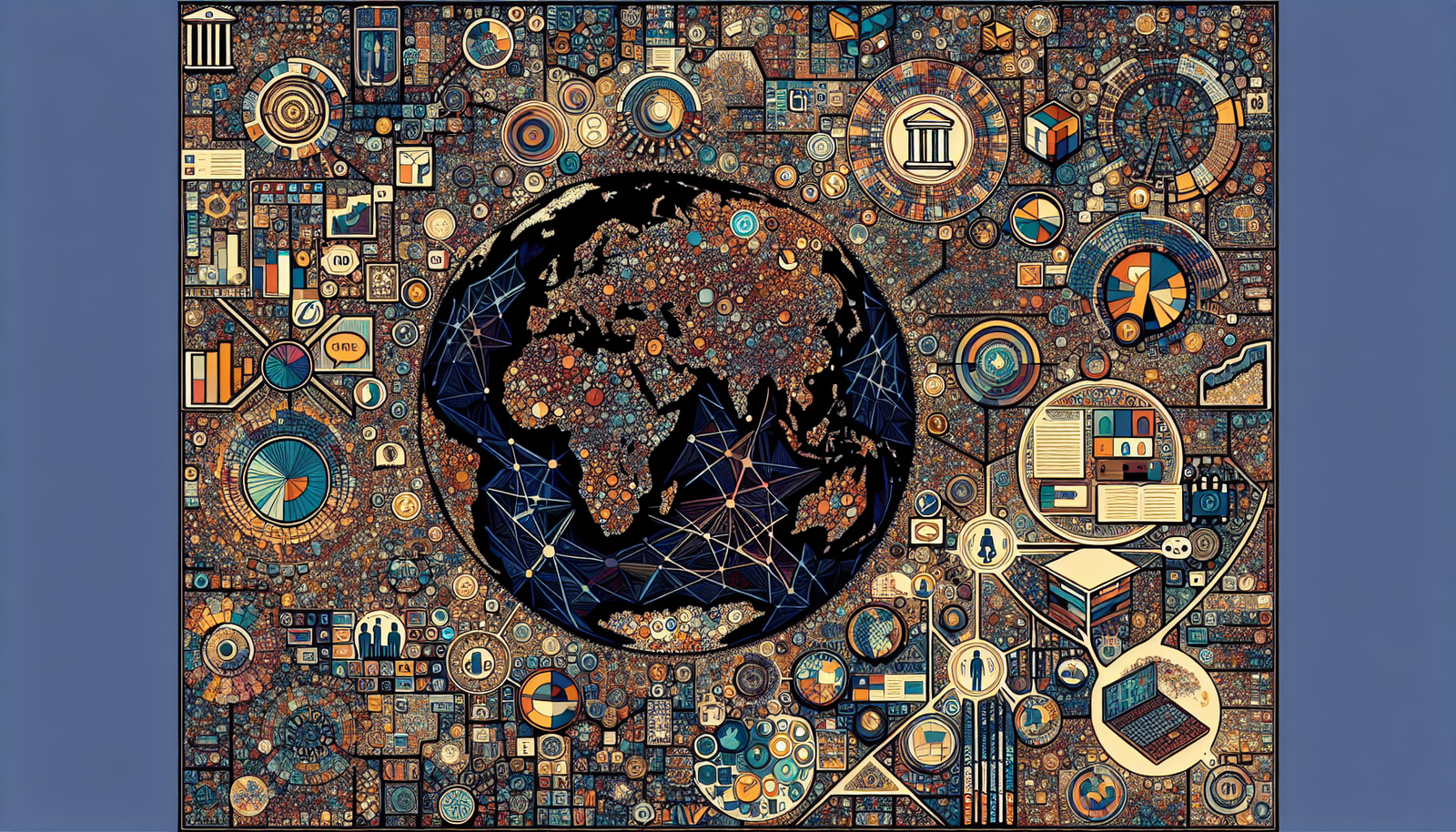
In the bustling swirl of the global economy, have you ever paused and wondered, “Who Controls Money In The World”? Money, the lifeblood of modern societies and economies, flows in currents controlled by forces often unseen. This intricate system, as vast and complex as any starlit galaxy, is central to your life, your dreams, your future. Allow yourself to expand your understanding by navigating the financial cosmos through this enlightening exploration. A story will unfold, telling the tale of those elusive figures dancing in the shadows, tugging on the purse strings of the global stage. The tale is tantalizing, gripping, and perhaps at times, a little unnerving. So, prepare yourself to embark on a journey into the cloistered world of financial puppeteers.

Central Banks
Understanding Central Banks
When you wonder about who controls money in the world, think about an orchestra conductor with their baton soaring and dipping, directing the flow of music. A Central Bank has much the same job but instead of getting melodies to blend harmlessly, a Central Bank trims, tucks, and pulls at the economy, directing the flow of a nation’s money.
Role of Central Banks in National Economies
A Central Bank plays a significant part in a nation’s economy, acting both as a banker to the government and as custodian of the country’s monetary reserve. You could see it as a kind of economic gatekeeper, setting interest rates, controlling money supply, and ensuring financial stability. Consider it as the guardian of your nation’s financial heartbeat, thumping steadily amid the hustle and bustle of fiscal activities.
Major Central Banks in the world
On the global stage, there are few central banks that control the world’s cash flows more than the Federal Reserve System (US), the European Central Bank (Eurozone), Bank of Japan, and the Bank of England. Their decisions, as mighty as tidal waves, reverberate and hold sway over the global economy.
International Monetary Fund
Origin and Purpose of IMF
The International Monetary Fund, quilted together in the dying ember of the Second World War, was designed to preserve economic stability and prevent a rerun of the destabilization that led to the Great Depression.
IMF’s Influence on World Finance
The IMF casts a long shadow over global finance. It’s your supporting artist in times of economic downturns, providing loans to member countries wrestling with balance of payment problems, leading them out of potential economic chaos.
Criticisms of IMF
However, the IMF faces criticism as the shepherd of austerity. Its loan conditions often demand fiscal belt-tightening that critics argue widen the gap between the wealthy and the low-income citizens.
World Bank
History and Role of World Bank
Born at the Bretton Woods conference, alongside the IMF, the World Bank carries the burden of fostering development and reducing poverty. It’s like an altruistic millionaire, aiming to provide financial and technical assistance to developing countries for development programs.
World Bank’s Financial Power
The World Bank holds the magic wand of finance; it can crank open the taps of funding for causes such as infrastructure, healthcare, or education. It boasts the ability to shape the destinies of nations with its resources.
Debates Surrounding World Bank
In spite of noble aims, the World Bank is not without controversies. Critics argue that its funding often comes with stinging conditions that end up exacerbating the poverty they intended to alleviate.

Bretton Woods System
Understanding the Bretton Woods System
The ghost of Bretton Woods still whispers in our financial system. At its heart, Bretton Woods was a mutual agreement to peg currencies to the value of gold. In effect, it held the scales of economic balance between nations.
Impact of Bretton Woods System on World Finance
Bretton Woods shaped the world’s financial architecture. It sewed the seeds of financial cooperation among nations, leading to a sturdier, more interconnected world economy. You may see it as the stone that triggered the avalanche of today’s global financial system.
End of Bretton Woods System
Despite its success, Bretton Woods’ system couldn’t keep up with our shape-shifting world economy. It collapsed in 1971, but its legacy lives on, molding the contours of modern global finance.
Global Financial Markets
Structure and Functioning of Global Financial Markets
The global financial markets are the pulsating heart of international finance. It’s where countries, institutions, and individuals gather to trade assets, navigate currency waters, and debate over stocks, bonds, and derivatives.
Role of Financial Markets in Money Control
These markets are critical cogs in the world’s money machine. They funnel savings into investment, determining who gets capital and who pays for it, prying open the gates to wealth and innovation.
Major Global Financial Markets
The primary global players are the New York Stock Exchange, Nasdaq, London Stock Exchange, and Tokyo’s Nikkei, among others. They are the throbbing epicenters of global finance that have the clout to yank economies in their desired direction.
Private Banks and Financial Institutions
Role of Private Banks in Money Control
Private banks and financial institutions craft the gears of the world’s economic engine. They play a vital role in managing money supply and fostering economic activity by extending credit to businesses and individuals.
Risk Management in Private Banks
Square dancing with risk is part of their daily chore. Through strict risk management measures, these institutions try to safeguard your deposits and ensure that any lending is repaid.
Influence of Financial Institutions on Money Supply
Moreover, financial institutions flutter in the winds of money supply, controlling credit flow, manipulating interest rates, and consequently molding economic activity.
Federal Reserve System (U.S.)
Understanding the Federal Reserve System
The U.S. Federal Reserve is a powerhouse of global finance. It’s the hub that turns the wheels of the U.S. monetary policy, tasked with keeping inflation in check and ensuring financial system stability.
Influence of the Federal Reserve on Global Economy
The Federal Reserve’s decisions, like global ripples, wash across borders, impacting the global economy. Its policies seep into foreign shores and shift their economic landscapes.
Criticisms of the Federal Reserve System
Critics argue that it can inadvertently unleash financial hurricanes across the globe. The Fed’s recent rate hikes, for example, carved panic in emerging markets, sucking out their capital.
Multinational Corporations
Impact of Multinational Corporations on World Finance
Multinational Corporations (MNCs), your financial giants, straddle economies and influence global assets. Their investments ripple through the economy and in many cases, dwarf the GDP of smaller countries.
Role of MNCs in Financial Globalization
MNCs are soldiers of financial globalization. Through trade and investments, they bring economies closer together, knitting the financial world into an interconnected web.
Criticisms and Controversies Surrounding MNCs
Despite their compelling role, MNCs are not bereft of controversy. They stand accused of exploiting labor laws and creating economic imbalances.
Money Laundering and Offshore Banking
Understanding Money Laundering
Money laundering is the black stain of finance, a practice that muddies the purity of an economy. It refers to the process of making illegally-gained proceeds appear legal, thus tainting the world’s financial system.
Role of Offshore Banking in Global Finance
Offshore banking emerges as an oddity in our global finance story. While it can be a legitimate fiscal practice, it has often been spotlighted as a haven for money laundering.
Regulations Against Money Laundering and Offshore Banking
Spheres of law turn their stern gaze towards these practices. Regulations against money laundering and offshore banking are tightening, aimed at adding a layer of financial integrity to the global system.
Government Policies and Regulations
Effect of Government Policies on Money Supply
Imagine the power of a magician’s wand. That’s what government policies are. They can inflate or deflate the money supply and have profound effects on interest rates, inflation, and economic growth.
Role of Regulations in Financial Stability
Regulations stand as the vigilant guardians of financial stability. By directing fiscal traffic, they avoid traffic jams, keeping financial institutions from crumbling and economies from sputtering into crisis.
Regulation Changes and Their Impact on Global Economy
Regulations are not static, and changes can send ripples across the global economic pond. Whether they tighten or relax, each tweak can cradle the sphere of global finance, leading economies into periods of boom or bouts of bust.

Leave a Reply